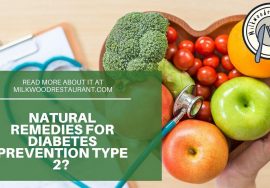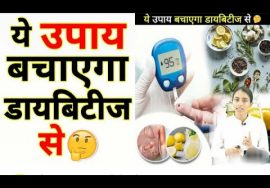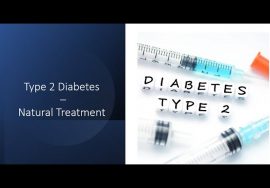The Best Diet for Diabetes
The case for using a plant-based diet to reduce the burden of diabetes has never been stronger.
Subscribe to NutritionFacts.org's free e-newsletter and receive a recipe from Dr. Greger's brand-new cookbook, The How Not to Diet Cookbook:
If all a plant-based diet could do is prevent and reverse the number one killer of men and women (heart disease), shouldn’t it be the default diet until proven otherwise? (See How Not to Die from Heart Disease ( )) Yet the evidence for the benefits of a more plant-based diet continues to emerge for a variety of other life-threatening chronic diseases.
I’ve previously discussed plant-based diets and diabetes in:
• Plant-Based Diets and Diabetes ( )
• Plant-Based Diets for Diabetes ( )
• Benefits of a Macrobiotic Diet for Diabetes ( )
• How Not to Die from Diabetes ( )
• Reversing Diabetes with Food ( )
• Diabetes Reversal: Is It the Calories or the Food? ( )
And what was that about stopping kidney decline in its tracks? See:
• Treating Chronic Kidney Disease with Food ( )
• Which Type of Protein Is Better for Our Kidneys? ( )
• How Not to Die from Kidney Disease ( )
• How to Treat Heart Failure and Kidney Failure with Diet ( )
Learn more about the dietary phytochemical index I mentioned in Calculate Your Healthy Eating Score ( ).
Have a question about this video? Leave it in the comment section at and someone on the NutritionFacts.org team will try to answer it.
Want to get a list of links to all the scientific sources used in this video? Click on Sources Cited at . You’ll also find a transcript and acknowledgements for the video, my blog and speaking tour schedule, and an easy way to search (by translated language even) through our videos spanning more than 2,000 health topics.
If you’d rather watch these videos on YouTube, subscribe to my YouTube Channel here:
Thanks for watching. I hope you’ll join in the evidence-based nutrition revolution!
-Michael Greger, MD FACLM
Captions for this video are available in several languages. To find yours, click on the settings wheel on the lower-right of the video and then "Subtitles/CC."
Do you have feedback about the translations in this video? Please share it here along with the title of the video and language:
To view the subtitles in transcript format, click on the ellipsis button below the video, choose "Open transcript", and select the language you'd like to view them in.
Image credit: Dustin Kirkpatrick
• Subscribe:
• Donate:
• HOW NOT TO DIE:
• Facebook:
• Twitter:
• Instagram:
• Podcast :












The bottom line is that the case for using a plant-based diet to reduce the burden of diabetes and improve overall health has never been stronger. For more on diabetes, see https://nutritionfacts.org/topics/diabetes/
L)l
Hư hu
dj121 you clearly don’t have diabetes. That would send me to diabetic coma. This is such bs. You can’t stop diabetic cravings to not over eat, on this diet. The more you eat the more insulin spikes. The more insulin spike here comes cortisol, say hello to visceral fat. The story of my life when I was a vegetarian and then vegan. Thanks to Dr. Jason Fung an actual nephrologist and diabetic expert. I started fasting and eating low carb with organ meats. I could eat once a day or twice a day and be satisfied with grass fed organic animal protein and fat. Went from an A1C 13.7 to 5.1 in 3 months. Drop 30 lbs without trying. I Can do a 3 day water fast like nothing. Mental fog gone, energy through the roof. What may work for one person does not work for another. By the way, all of my labs as great and I sleep like a baby. You may get by on plants like a gorilla. Like a wild cat meat suits me better. Do what works for you.
Tvhhjyci gfhhrguu
Pppl00o
*Caution, eating a whole food plant-based diet to prevent and treat type 2 diabetes may reduce obesity, hypertension, hyperlipidemia, cardiovascular mortality, and cancer. Talk to your doctor about whether a longer and healthier life from consuming a plant-based diet is right for you.
@Lisa DuCette hi ,if you had,or have a dr. That will advise you to eat a ketogenic diet that sounds like a good one to keep. And not silly ,but might be overpaid. … i had a dr. That wouldnt even talk to me about diet just wanted to push meds.?
@Katzen sind weich I am not a filthy Vegan ,, so as my parents and grandparents I will get 80+ years
@wynott givemore92 I eat near 100% grass fed LAMB and beef ,, free range chicken occasionally. Good healthy old style Aussie food
@Tilapia Aquaponics if a life expectancy of 30 is your goal sure
And that’s exactly how “they” sound, too… haha
Soon even the heads buried deepest in the sand will have to come out! 😀
Nope. They will simply die because of kidney/heart/… failure or cancer while keeping their heads buried deeply in sand.
@You Are The Universe I’ll punish you ?
@You Are The Universe I’ll be your doctor
Dr Des! I’m in Ireland! What county are you in? I would like a plant based doctor! ♥♥♥
Thanks to a low-fat WFPB diet my mom lost ~40lbs and was able to (almost) reverse her diabetes. “Almost” because she still has to check her blood sugar status from time to time and goes to her doctor for general check ups but other than that she’s the healthiest she’s been in years and I’m so happy for her!
Пр т иоолдз иьэг ч.гъэбс к0
Ь
O
D
@Vilandra Wagner a lot of people have the same or even better results on a low carb died. Maybe that’s an option for your mother
I wish my mom would try it! She refuses to even eat vegetarian
I can”t stand this dpeed voice its insane to ilustrate a presentation talking inside of a box.
my dads a1c went from 12 to 7.1 after going more plant-based. it’s insane how powerful food is
Excellent!!
Randy Lin how is your EGF and lipid panel?
I lost 60 lbs in 4 months and dropped my bloodsugars from 13.6 to 7 in 4 months. On a Keto/Carnivore diet.
Hi, how long did it take to go down to 7.1
@Kristie A It really is sad to hear that especially when we just want to help them! Being certified in nutrition is amazing! If anything, he should be listening to your advice even more!
Thank you Dr. Greger!?
This dude sounds like Chris from family guy
Dr. Greger, please do some videos focused on type 1 diabetes!!! We sometimes feel left out ??
@sourdoh! bgg
@Aeroplane Guy I agree. People who are RFD enthusiasts are EXTREMELY DOGMATIC. There is so much to be missed by not eating beans and legumes, sweet potatoes and oatmeal. Fine, let ’em graze like gotdamned cows then. I won’t have to spend money on dates, just take them out back into my yard.
@Aeroplane Guy vegan gains is just another hypocrite projecting his bad life into others
My issue with the raw pbd is that it misses some key nutrients and is much harder to plan a nutritionally adequate diet. Look at all the “vegans” leaving now, 90% of them are raw and complain of easily solvable issues. So a raw pbd is just setting people up for failure. There’s nothing wrong with beans, lentils, oatmeal, barley, sweet potatoes and etc. Cooking your food also increases its caloric bioavailability and is much easier to not under eat. Raw diets are hard with many issues, stay away from them unless you have a very specific reason but even then I doubt you’ll be able to sustain it long term.
@Aeroplane Guy raw diets are not void of any nutrients. what do you mean? its not for everyone but it certainly do-able. lots of juicing, sprouting…nutritarian style.
Thanks for the wonderful videos.
My mom has stopped her metformin after becoming vegan (she was lactovegetarian for 30 years before becoming vegan)
My patients are reducing their medication on a plant-based diet
@Preena Obviously they won’t get elevated glucose, the liver (one of the less diagnose organs cause it can go way in time without any symptom) digest 80% of.the fructose, so yeah there is practically not much glucose going into the bloostream, the liver? That’s other issue if they don’t know they have a fatty live Wich it can be caused by a massive amounts of glucose ingested in the diet we don’t know if fruit is actually one of the worst foods for some people
@Aeroplane Guy Yeh how grains can be nutrition powerhouse if they put vitamins in them? Because they’re a waste, inneficient foods compare to other way more cleaner metabolic ways derived from others food
And they will die early ,
Fruit is great but in my opinion keep it as snacks or one meal maximum per day. One more thing I suggest is swishing water in your mouth several times after eating fruit and other meals. The real gold mine is oatmeal, sweet potatoes, beans, lentils, barley and so on, basically grains and starches (complex carbs), nutrition powerhouses. Then keep everything else tertiary, cruciferous leafy greens, fruit, citrus family, other veg. Check Dr. Gregers Daily Dozen free app or you can find an example of foods to aim for daily.
At most 3- 4 servings of fruit… diabetics should avoid watermelons, grapes, mangoes, litchis… fruit with a high sugar content
Diabetics, in my experience, don’t get an elevated blood glucose level with whole berries… limited to a serving a day
just a BIG THANX for your time, and for making this information easier and more available… greetings from CHILE !!
Please do a video on Abbey Sharp (aka. Abbey’s kitchen)!
In my experience as a dietitian, every single diabetic person I’ve ever worked with, who adheres to a lower fat (<15% calories) WFPB diet, gets better control of their blood glucose, and about 65% of them totally cure the disease.
@David Barry “The Papua New Guineans traditionally subsisted on a plant based diet, of which a number of varieties of sweet potatoes typically supplied over 90% of dietary intake. They also grew a number of other crops including corn, as well as sugar cane which was consumed as a delicacy. Pig feasts are organised a few times a year, but at which pork is not consumed in excess of 50 grams. A dietary survey on the Papua New Guineans highlanders estimated that carbohydrate accounted for 94.6% of total energy intake, among the highest recorded in the world. Total energy intake was adequate, however only 3% of energy intake was derived from protein (25g for men and 20g for women), yet there was no evidence of dietary induced protein deficiency or anemia. Furthermore, this surveyed population was described as being muscular and mostly very lean, physically fit and in good nutritional state.16 17 They also drank ‘soft’ water which is considered a risk factor for cardiovascular disease. It was estimated that tobacco was smoked by 73% of males and 20% females. Also, the highlanders spend up to twelve hours a day inside a smoke-filled house due to centrally placed open wood fires with little ventilation and no chimneys in their homes, resulting in a very high exposure to hazardous smoke in this population.16
Despite cardiac risk factors including high exposure to smoke and soft drinking water, a number of authors observed a great rarity of incidence of atherosclerosis, coronary heart disease and stroke among the traditional Papua New Guineans, but also noted an increase in incidence paralleling the Westernization of the nation. In 1958, Blackhouse reported on autopsies of 724 individuals between 1923 and 1934 and found no evidence of heart attack incidence and only one case of slight narrowing of the coronary arteries. However, it has been suggested that this study was selective as only a small portion of the autopsies were performed on females or the elderly. In 1969, Magarey et al. published a report on the autopsy results of 217 aortas and found a great rarity of atherosclerosis. The authors noted that the prevalence and severity of atherosclerosis was less than had been reported in any previously investigated population.18 In 1973, Sinnett and Whyte published findings from a survey of 779 highlanders using electrocardiograms among other methods, and found little probable evidence of coronary heart disease, and no clinical evidence of diabetes, gout, Parkinson’s disease, or any previous incidence of stroke.16
For a population that consumed virtually the highest intake of carbohydrates out of any population to also have virtually the lowest incidence of atherosclerosis and diabetes ever recorded highlights the vital importance of the health properties of specific carbohydrate rich foods. These findings further question certain ‘carbohydrate-induced dyslipidemia’ hypotheses, emphasized by certain researchers, who perhaps intentionally do not always take the quality of carbohydrate rich foods into careful consideration.19
In 1900, Sir William MacGregor reported in the Lancet in regards to the observed rarity of cancer among the native Papua New Guineans, asserting that:20
For nine and a half years I never saw a case in British New Guinea ; but at the end of that time there occurred an example of sarcoma of the tibia in a Papuan, who had for seven or eight years lived practically a European life, eating tinned Australian meat daily.
In 1974, Clezy brought to attention the rarity of mortality from colorectal cancer among the Papua New Guineans, for which the observed annual rate per 100,000 was 0.6 for men and 0.2 for women. These rates were 100 fold lower than that of many developed nations during the same time period, although this could have been in part explained by underdiagnosis.17
Even in more recent statistics after modest changes towards a western diet, the Papua New Guineans still had among the lowest rates of hip fractures in the world, which Frassetto et al. observed was more than 50 fold lower than that of the Scandinavian nations.21 Although these researchers ascribed the worldwide differences in rates of hip fractures to the ratio of vegetable to animal protein, evidence from prospective cohort studies and randomized controlled trials, as well as experimental animal models suggests that saturated fat may be at least as great, if not an even greater contributor to poor bone health.22 23 24 25 26 “(http://healthylongevity.blogspot.com/2012/11/traditional-diets-in-asia-pacific-and.html?m=1)
@David Barry you are absolutely clueless. People REVERSE their diabetes eating a high carb high fiber low fat no oil diet. Too much FAT csuses diabetes. A high fat low carb diet manages it but does nothing to reverse it and ruins your health at the same time
@David Barry you want to make a bet? I will bet you or anyone else right now 1 million dollars that I will never get diabetes. How confident are you to make that bet? That means that whoever loses either has to pay the other a million dollars or go to prison.
@dj121 you will prob get diabetes
@Chepben thats right
THANKS the only people who disliked the video are meat eaters. lol
Told my father, said that watching this 5 minute video was all he had to do to at least be more educated about his disease. Five minutes of his time is too long apparently,..I’m done with the willingness to stay ignorant for the sake of habits and tradition. Everyone should change their minds and actions, based on valid new information and evidence, and the people I encounter fear the new info to such a degree they are not even willing to look at it. It’s heartbreaking
Yep mine too. It is like watching an alcoholic drinking himself to death. My mother on the other hand is reaping the plant based benefits.
Honestly, I tell my family these things but they just scoff and act like they know better as they eat pizza and hamburgers
I just love your videos! always makes my day to learn about the newest and best available information on nutrition research <3
Get some REAL information Dr Jason Fung
Ah yes, the voice of one crying out in the wilderness. Thank you for the truth. Blessings brother.
Please review the Reduce-it trial by sponsor Amarin. The data is overwhelming, could you please break it down for us?
@Kerem Kilic I was curious, so I took a peek. See the link, and go to the lengthy ‘conflict of interest’ section. Also note under ‘funding/support’ that the company was involved in the design study, collection, analysis, and interpretation. I’m no doc, nor a researcher, but if the company was heavily involved don’t you think they made REAL sure they would get the results they wanted??
http://www.onlinejacc.org/content/early/2019/03/01/j.jacc.2019.02.032?_ga=2.65606633.657203865.1554424136-1989393536.1554424136
Double blind,six year study , in 11 countries. I have been on Vascepa for three years and four months. It works and my bloodwork can validate that claim. How do you suggest studies get done? This is what researchers and clinicians consider “gold standard”. Are you a physician? That is why I asked for Dr. Gregor’s opinion about the study, I wanted to hear his opinion because I respect the way he approaches things, scientifically. Good day
@Kerem Kilic umm, ouch… if you would like a response from Dr. G/ staff, go directly to nutritionfacts.org under the same video. They actually do answer questions there, not here on his youtube channel. Be well! : )
Mediterranean also good for diabetic, This diet, based loosely on the eating habits of people in Greece, Southern France and Italy, reduces red meat intake and increases vegetables, nuts and healthy fats. For instance, it recommends getting most of your calories from grains, then fruits, vegetables and beans, and lastly, dairy.
You can eat healthy fats such as those from avocados and olive oil every day. Eat sweets, eggs, poultry and fish sparingly — only a few times each week — and red meat only a couple of times each month.
This Quick 2-Minute Quiz Will find out the easiest way to lowering blood glucose levels, click here:https://diabetesplan.site
La mediterránea también es buena para los diabéticos. Esta dieta, basada libremente en los hábitos alimentarios de las personas en Grecia, el sur de Francia e Italia, reduce la ingesta de carnes rojas y aumenta las verduras, los frutos secos y las grasas saludables. Por ejemplo, recomienda obtener la mayor parte de las calorías de los cereales, luego de las frutas, verduras y frijoles y, por último, de los productos lácteos.
Puede comer grasas saludables como las de los aguacates y el aceite de oliva todos los días. Coma dulces, huevos, aves y pescado con moderación, solo unas pocas veces a la semana, y carnes rojas solo un par de veces al mes.
Thanks for your videos!